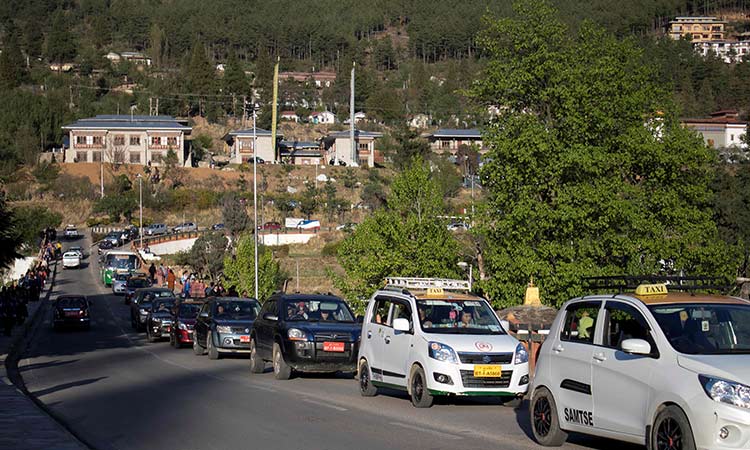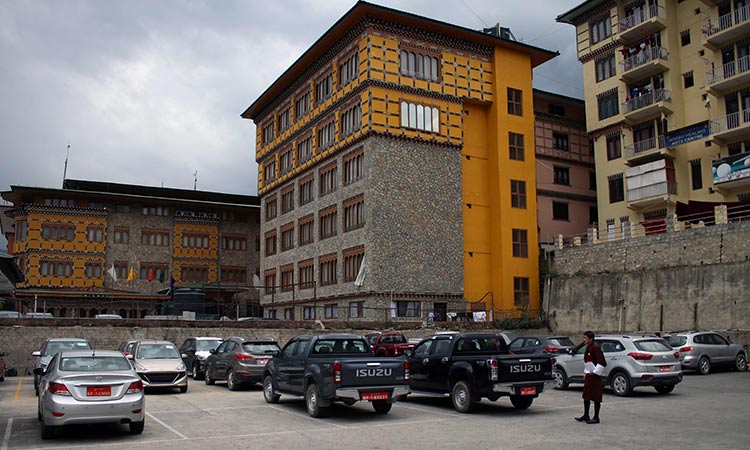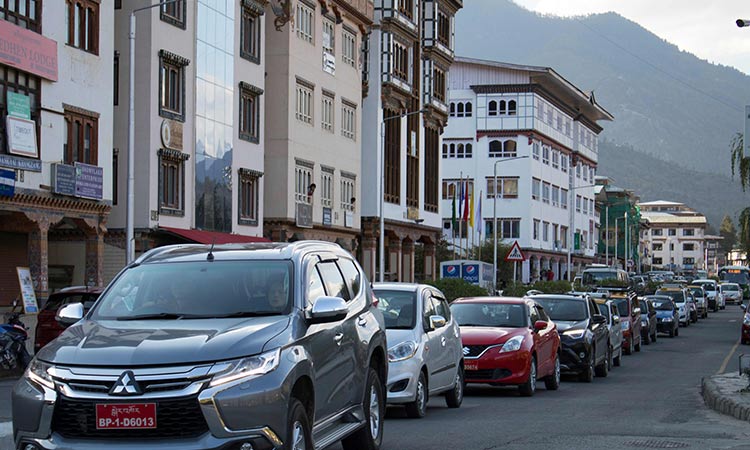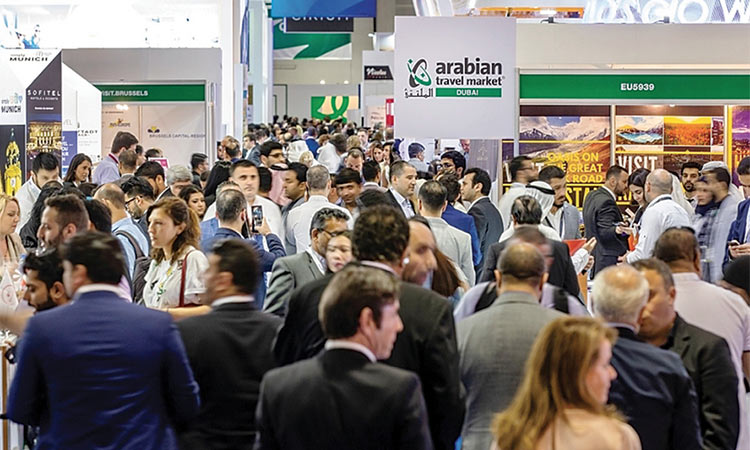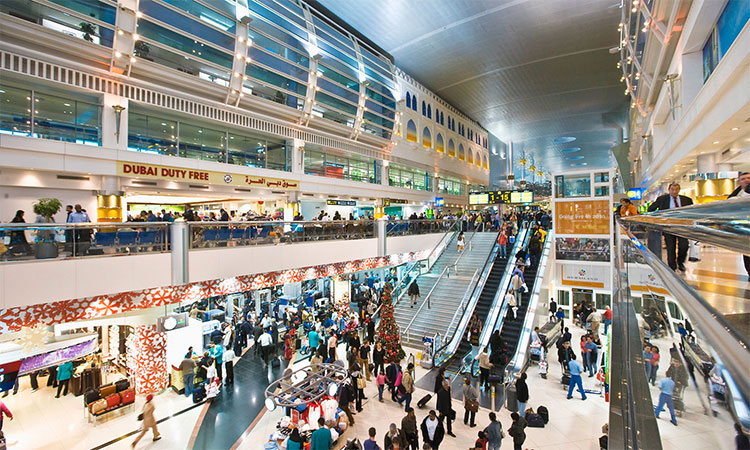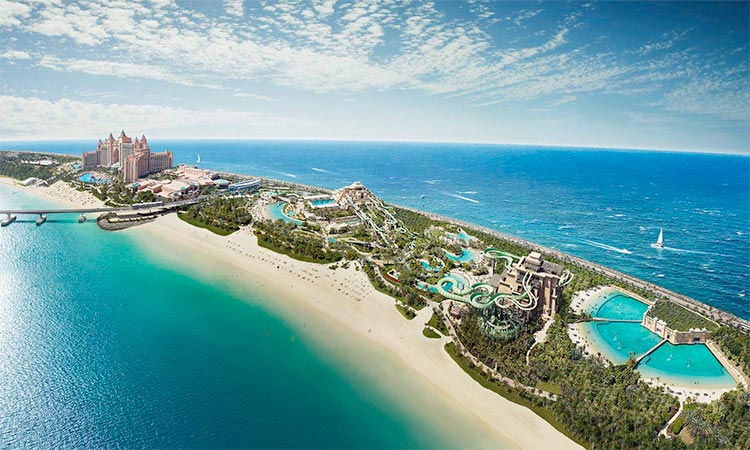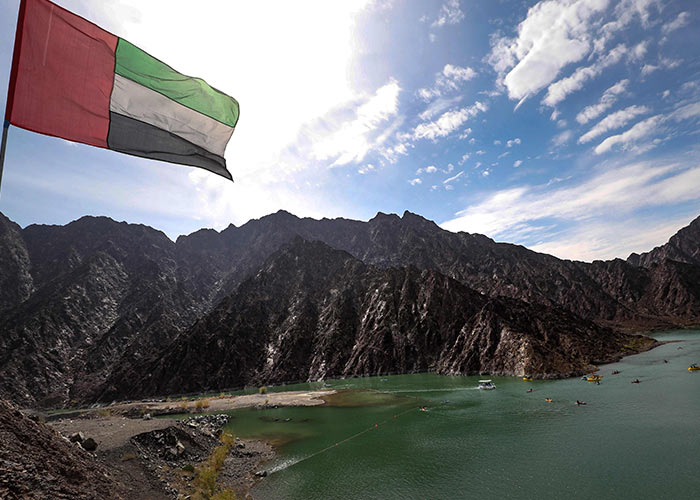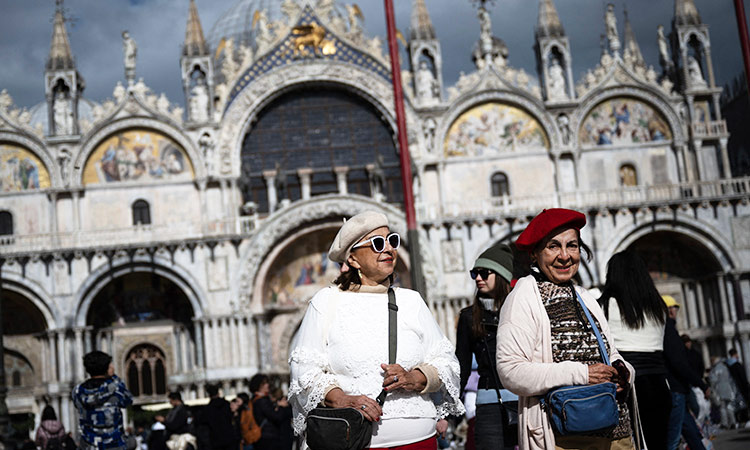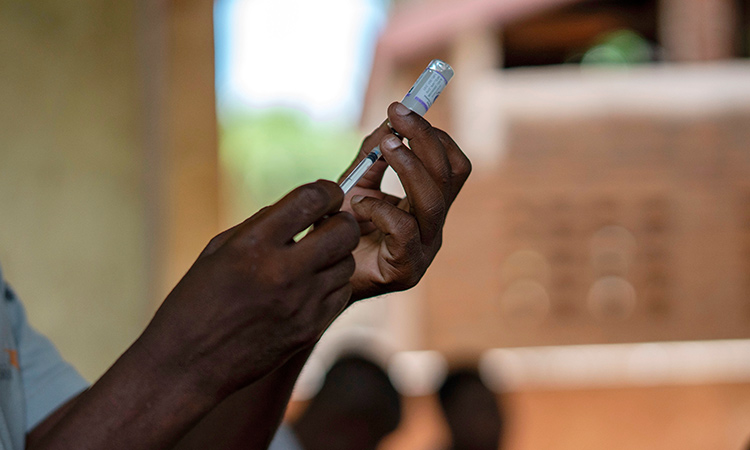Car boom brings gridlock misery to 'green and happy' Bhutan
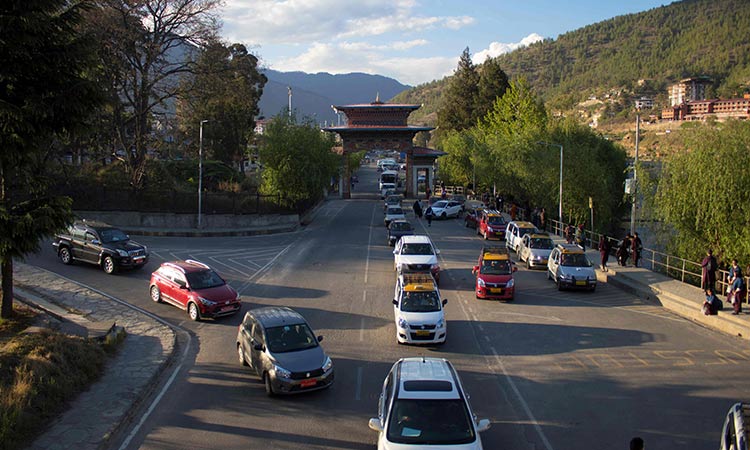
Traffic backed up on a road in Bhutan's capital Thimphu. Upasana Dahal/AFP
Famed for valuing Gross National Happiness over economic growth, Bhutan is a poster child for sustainable development.
But booming car sales may impact efforts to preserve its rare status as a carbon negative country — and an increase in traffic is testing the good humour of its citizens.
Bhutan has seen a more than five-fold increase in cars, buses and trucks on its roads in the past two decades, according to transport authority director general Pemba Wangchuk with capital Thimphu hardest hit by the influx of vehicles.
"Every year the number of cars and the number of people are increasing, and the roads have remained the same, and it's a problem for us.
"I wish there were fewer cars. It wasn't like this before," he adds of life in Thimpu, which is home to half the cars in the country.
The nation's economy has grown 7.5 percent each year in the past decade, according to the World Bank. Officials estimate there is now one car for every seven people in Bhutan, which has a total population of 750,000.
The traffic jams are a sign of the wider economic changes the nation is facing. AFP
But the nation's narrow country lanes and outdated city roads can barely cope. A lack of infrastructure, along with poor driving etiquette — some simply leave their cars parked in the middle of the road — compounds the problem.
"Every year the number of cars and the number of people are increasing, and the roads have remained the same, and it's a problem for us," Lhendup, a taxi driver, said.
The traffic jams are a sign of the wider economic changes the nation is facing. Bhutan is renowned for prioritising Gross National Happiness over GDP, and has captured tourists' imagination as a tranquil, idyllic land, but there are signs of malcontent.
Cars and pick-up trucks in a parking lot next to traditional buildings in Bhutan's capital Thimphu. AFP
The proliferation of the internet and smartphones are fuelling modern desires, while dealers are filling their showrooms with new brands and models from Japan and South Korea to lure buyers.
And while taxes have increased and restrictions put on vehicle loans, car buyers are not discouraged.
Environmental activist Yeshey Dorji explains: "As a nation that prides itself on being a carbon-negative country, the increase in the number of fossil fuel vehicles speaks poorly of our leadership position in environmental conservation."
Bhutan's constitution dictates that at least 60 percent of the country must be forest and the figure is currently above 70 percent.
To ease congestion, the city is constructing its first two multi-storey car parks. AFP
But Bhutan is now importing more in fossil fuels than it exports in hydropower to India — the country's biggest revenue earner.
Public transport is poor, particularly in Thimpu, which is home to 100,000 people but barely 40 buses.
To ease congestion, the city is also constructing its first two multi-storey car parks that will each take about 600 cars.
The National Environment Commission insists Bhutan is still carbon negative despite the traffic jams and vehicle boom, but wants to stop things worsening.
Agence France-Presse
